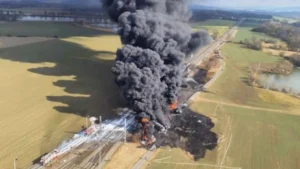Jawarlal Nehru University (JNU) Umar Khalid, who has been a key convict in the the 2020 Delhi riots case has been denied bail by a delhi court this Tuesday.
The police have accused him for planning protests at 23 places. He was charged with criminal conspiracy, rioting, unlawful assembly as well as several other offences under the unlawful activities prevention act (UAPA).
Additional Sessions Judge Sameer Bajpai of Delhi’s Karkardooma Courts dismissed Mr. Khalid’s plea who filed by the Jawaharlal university itself. Mr Khaldi had filed a bail application in the Supreme Court which in May 2023, sought response from the Delhi Police in the matter. His plea before the top court was then adjourned 14 times after which Mr Khali’s counsel, Senior Advocate Kapil Sibal, informed the Court that the bail plea was being withdrawn.
The accused had approached the trial court after the withdrawal of his bail plea before the Supreme Court on February 14, 2024. He had sought regular bail in the matter on the grounds of delay and parity with other accused in the Delhi riots case.
To mention, Natasha Narwal, Devangana Kalita and Asif Iqbal Tanha — all accused in the Delhi riot’s larger conspiracy case — were granted bail by the Delhi high court in the past.
So, what did they do in the Delhi riots 2020?
To sum up 2020 North-east Delhi riots, It was bloodshed, arson, rioting, looting shops and properties – all this happened not in a hinterland but in the national capital.
The communal violence struck the northeast part of Delhi in February 2020 during an anti-CAA [Citizenship (Amendment) Act] protest and tore apart the social fabric of the city. As many as 54 people were killed—with over 40 belonging to the minority community.
How it Began?
On December 12, 2019, the Citizenship Amendment Bill (CAB), passed by both Houses of Parliament, became an Act after getting the accord of then President Ram Nath Kovind. However, its passage sparked widespread protests, which first began in Assam and later spread to other States, including Delhi.
By amending the Indian Citizenship Act, CAA aims to provide an accelerated pathway for grant of citizenship to migrants belonging to Hindu, Sikh, Jain, Parsi, Buddhist, and Christian communities from Afghanistan, Bangladesh and Pakistan who had entered India before 2014, in fear of religious persecution in their own country. However, the Act categorically excluded the people belonging to the Muslim community.
Shaheen Bagh in southeast Delhi became the epicentre of the protest against the act. Despite Delhi experiencing severe cold days, the women sat on an indefinite protest at Shaheen Bagh.
The anti-CAA protests were also organised in Hauz Rani, Jama Masjid, Darya Ganj, Seelampur, Nabi Kareem, Shastri Nagar, Sadar Bazar, where a substantial Muslim population resides.
The sustained sit-in, leading to a roadblock (chakka-jaam) by seemingly amorphous but bonded by undercurrents of anti-CAA groups, had caused hardships for the daily commuters.
Around 1,000 protesters, including women, began a sit-in protest near the Jaffrabad metro station on February 22, 2020. A day later, BJP leader Kapil Mishra and his supporters reached a protest site at Maujpur Chowk and allegedly threatened to “take matters into his own hands if the police failed to disperse the protesters” from the Jaffrabad and Chand Bagh areas in the next three days.
Later, clashes broke out between the anti and pro-CAA demonstrators in Karawal Nagar, Maujpur Chowk, Babarpur, and Chand Bagh. Vehicles were gutted and shops were destroyed. The police used lathi charge and tear gas to disperse the crowd, but the violence continued unabated, with rioters attacking the people and property.
As many as 53 people, two-thirds belonging to the Muslim community, were killed in the violence. The dead also included over a dozen Hindus. Reports indicated that the death was due to a shot, stabbing or fire injury.
Several bodies were also found in open drains. As the violence ended, hundreds of wounded were languishing at hospitals. Two years later, a report published independently by the committee of retired judges and bureaucrats recognised that the violence should not be seen only within the limited prism of that fateful week in February 2020 but the tragic culmination of a deliberate build-up of polarisation between the two communities.





















